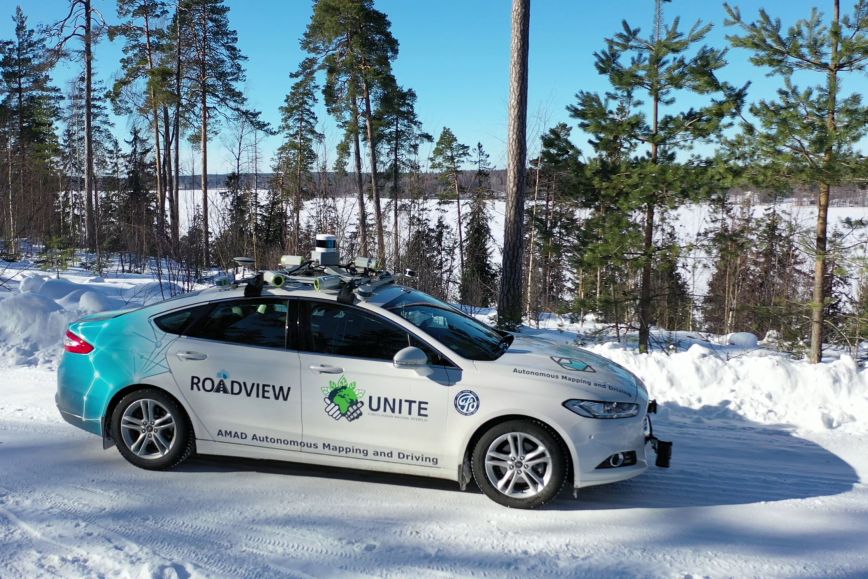Until now, most automated vehicles have primarily been trained and tested in good weather conditions in which visibility is high. However, autonomous vehicles must be able to operate reliably and precisely in any weather before their use can be expanded.
FGI’s researchers took on this challenge in an international consortium’s Roadview project, which aims to improve the operation of autonomous vehicles in challenging weather conditions.
Researchers are assisted by a robot car developed by FGI. In the project, researchers develop machine vision for autonomous vehicles to scan the surrounding environment and other road users and to operate accordingly. As a result, steering and speed would be adapted according to the slipperiness of the road surface.
‘FGI has years of experience in the development of autonomous vehicles. We have a team of skilled researchers and a self-driving research vehicle. In addition, we have our fair share of difficult weather conditions in winter which is also beneficial in this project,’ says Heikki Hyyti, Research Scientist at FGI.
‘We are more than excited about this project. We are working with Europe’s leading autonomous vehicle organisations to advance research and development in the sector.’
A special car full of technology
The self-driving research vehicle was developed by FGI. It is equipped with several colour cameras and 3D laser scanners. The car also features three radars, the GNSS satellite positioning system, thermographic cameras, and an optical road surface sensor.
‘These sensors collect data about the impact of different weather and driving conditions on the road surface and help investigate how visible environmental factors affect the slipperiness of the road,’ says Julius Pesonen, Researcher at FGI.
Slipperiness detection is based on a machine vision model. It produces slipperiness estimates directly from camera images based on the thickness of water, snow and ice layers. When roads are covered with black ice and sleet, FGI’s special car goes into action to collect valuable data for autonomous vehicles of the future.
More information
Research Scientist Heikki Hyyti +358 4 0771 8099, firstname.lastname@nls.fi
Research Scientist Julius Pesonen +358 50 375 0352, firstname.lastname@nls.fi
Research Scientist Jyri Maanpää +358 50 412 1537, firstname.lastname@nls.fi
Self-driving research vehicle in a video
Thesis on slipperiness detection on road surfaces

Funded by the European Union (funding decision no. 101069576). The views and opinions presented only belong to the authors of the text, and may not match those of the European Union or the European Climate, Environment and Infrastructure Executive Agency (CINEA). The EU or CINEA are not responsible for them.

